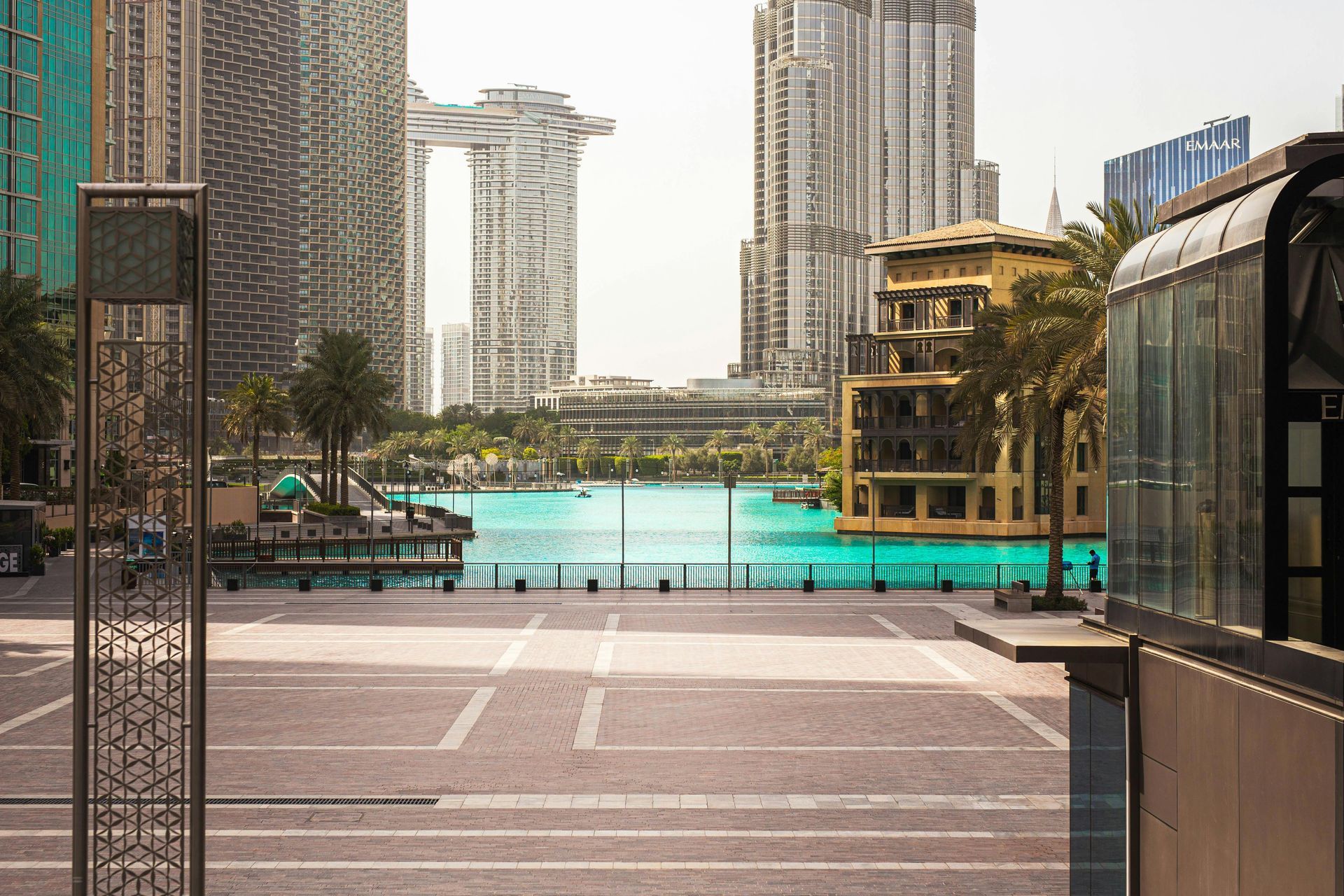Starting a Business in the UAE: A Practical Guide from Mosaic Chambers Group
May 28, 2025
Thinking of setting up your business in Dubai?

The United Arab Emirates (UAE) is one of the most attractive destinations in the world for entrepreneurs, investors, and multinational businesses. With its business-friendly environment, strong legal framework, and strategic location, the UAE offers the ideal conditions for companies looking to launch or grow their operations in the Middle East and beyond.
Strategic Global Access
Located between Europe, Asia, and Africa, the UAE offers excellent connectivity to over 2 billion consumers and access to fast-growing global markets.
Favourable Tax Policies
The UAE has no personal income tax and a low 9% corporate tax (only applicable to profits over AED 375,000), making it a highly tax-efficient base for international businesses.
Robust Infrastructure
From modern airports and ports to advanced telecommunications and transport systems, the UAE offers everything needed for smooth business operations.
Flexible Company Structures
Choose between Mainland, Free Zone, or Offshore setups, depending on your business model, ownership preferences, and target market.
Key Steps to Start a Business in the UAE
1. Define Your Business Activity
Your chosen activity determines which licences and approvals are needed. Some sectors, such as financial services or education, require additional authorisation from regulatory bodies.
2. Choose the Right Business Structure
Choosing the right business structure in the UAE is essential because it sets the foundation for how your company operates, grows, and complies with local laws. The structure you select affects everything from ownership rights and liability to tax efficiency and the ability to trade or raise capital. With the UAE offering various options tailored to different business needs, getting it right from the start can save time, reduce risk, and support long-term success.
3. Mainland vs Free Zone
- Mainland companies can trade directly within the UAE and with government entities.
- Free zone companies enjoy tax benefits and 100% repatriation of profits, but if a freezone company is seeking market entry into mainland UAE, you would need to consider a restructuring.
Business Setup Process: Step-by-Step
- Select Your Activity – Choose from a list of permitted activities that align with your goals.
- Reserve a Business Name – Must follow UAE naming rules and avoid restricted terms.
- Get Initial Approvals – From the Department of Economic Development (DED) or your chosen free zone authority.
- Draft the MoA (Memorandum of Association) – Required for LLCs; outlines ownership, structure, and responsibilities.
- Secure Office Space – This is mandatory for most businesses. Free zones may offer co-working or virtual office options.
- Apply for a Trade Licence – Based on your activity: Commercial, Industrial, or Professional.
- Register the Company – Submit final documents to the relevant authority.
- Open a Corporate Bank Account – Required to legally operate and receive payments.
- Apply for Visas – For owners, employees, and dependents.
Compliance and Legal Requirements
- VAT Registration – Required for businesses earning over AED 375,000 per year.
- Economic Substance Regulations (ESR) – Applies to specific sectors and requires companies to show they have substantial operations in the UAE.
- Ultimate Beneficial Ownership (UBO) and AML Compliance – Businesses must maintain transparent ownership records and follow anti-money laundering regulations.
Beyond Setup: What Else to Consider
Hiring & Workforce Planning
Mainland companies must comply with Emiratisation quotas in certain industries. All employers must issue legal contracts, offer medical insurance, and follow UAE labour laws.
Cultural Awareness
Strong personal relationships and respect for Islamic values are key to doing business in the UAE. Observing local customs will help build trust and long-term partnerships.
Intellectual Property (IP) Protection
Registering your brand, trademarks, and IP rights with the Ministry of Economy is essential for protecting your business assets.
Access to Funding
The UAE offers a wide range of funding solutions, from government grants and incubators to VC firms and SME loan schemes.
Regional and Global Expansion
Once you’re established in the UAE, expansion into GCC countries and global markets is seamless thanks to the UAE’s extensive trade networks and logistics infrastructure.
Why Choose Mosaic Chambers Group?
At Mosaic Chambers Group, we do more than set up companies — we provide end-to-end support for entrepreneurs, investors, and established businesses. Whether you’re setting up in Dubai, Abu Dhabi, or across borders, we’re by your side every step of the way.
What Makes Us Different?
Global Reach
With operational hubs in Dubai and the UK, we offer relocation and corporate services that extend well beyond the UAE, supporting clients in global markets.
More Than a Setup Company
Company formation is only one part of our work. We deliver aftercare, compliance monitoring, visa processing, strategic advisory, and personalised relocation support.
Trusted Long-Term Partners
Our clients enjoy a dedicated advisor and single point of contact — someone invested in their long-term success, not just their initial launch.
Unmatched Quality of Advice
Others may advertise the lowest setup costs. But low prices often mean low-quality support. Our advice is thorough, strategic, and built to save you from costly mistakes and delays.
At Mosaic Chambers Group, we support clients across borders—not only in the UAE, but around the world. With hubs in both Dubai and the UK, our relocation and corporate services extend globally, making us the trusted partner for businesses serious about long-term growth. Get in touch below to find out more.

Navigating the UAE Employment Visa Process in 2026 Relocating to the United Arab Emirates for employment offers significant professional and financial opportunities. However, the UAE employment visa process is structured, compliance-driven and time sensitive. Understanding each stage in advance avoids unnecessary delays and protects both employer and employee from regulatory issues. Below is a comprehensive, easy-to-follow guide to the UAE employment visa process as it stands in 2026. Step 1: Securing a Confirmed Job Offer The UAE employment visa process begins with a formal job offer from a UAE-licensed entity. Only an employer registered with the relevant mainland authority or free zone authority can sponsor an employee. The employer becomes the visa sponsor and assumes legal responsibility for: Applying for the work permit Processing the residence visa Ensuring compliance with UAE labour law Covering government application fees (in most cases) Employees cannot independently apply for a standard employment visa without sponsorship. Step 2: Work Permit Application (Entry Permit Approval) Once the employment contract is signed, the employer applies for a work permit (also known as a labour approval) through the Ministry of Human Resources and Emiratisation (MOHRE) or the relevant free zone authority. Documents typically required include: Passport copy (valid for at least six months) Passport-size photographs Signed employment contract Attested educational certificates (if required for the role) If the employee is outside the UAE, an entry permit is issued, allowing them to enter the country legally for employment purposes. If the employee is already inside the UAE on a visit visa, status adjustment procedures apply. Step 3: Entry to the UAE (If Applying From Abroad) For applicants outside the UAE, the entry permit allows legal entry into the country. Once inside the UAE, the individual must complete the residency formalities within the validity period of the entry permit (usually 60 days). Timing is critical at this stage. Failure to complete the process within the permitted window may result in fines. Step 4: Medical Fitness Test All employment visa applicants must undergo a mandatory medical examination at an approved UAE medical centre. The test typically screens for: HIV Tuberculosis Hepatitis (in certain categories) The medical fitness certificate is a mandatory component of the residence visa application. Processing time: usually 24–72 hours depending on service speed selected. Step 5: Emirates ID Biometrics The applicant must apply for an Emirates ID, which serves as the UAE’s official identification card. This process includes: Biometric data capture (fingerprints and photograph) Identity verification The Emirates ID is linked directly to the residence visa and is essential for: Opening bank accounts Renting property Obtaining a driving licence Accessing utilities and telecom services Step 6: Residence Visa Stamping Following medical clearance and Emirates ID application, the residence visa is issued and stamped electronically against the passport record. Employment residence visas are typically valid for: 2 years (mainland companies) 2–3 years (depending on free zone authority) Once issued, the employee is legally resident in the UAE and may sponsor eligible dependants (subject to salary thresholds). Key Considerations in 2026 1. Free Zone vs Mainland Sponsorship Visa procedures differ slightly between mainland entities and free zone authorities. Free zones operate under independent regulatory frameworks, although federal immigration approval remains central. The choice between mainland and free zone employment has broader implications, including: Corporate structuring Tax residency status Social security considerations Family sponsorship options These should be assessed before finalising relocation plans. 2. Employment Visa vs Other UAE Visa Categories The UAE also offers: Green Visas (for skilled professionals and freelancers) Golden Visas (long-term residence for investors and high earners) Investor/Partner Visas For entrepreneurs and senior executives, an employment visa is not always the optimal route. Strategic structuring may offer longer validity and greater flexibility. 3. Tax Residency Implications The UAE does not levy personal income tax. However, relocating professionals must consider: Exit tax implications in their home country UK Statutory Residence Test (for British nationals) Split-year treatment Ongoing ties and centre-of-vital-interests rules Corporate tax exposure for business owners Inadequate pre-departure planning can result in unintended dual tax exposure. 4. Corporate Tax and Employment Structuring With the introduction of UAE Corporate Tax, business owners relocating to the UAE must assess: Whether they will remain directors of overseas entities Permanent establishment risks Substance requirements Intercompany arrangements Employment structuring must align with the broader corporate and tax strategy. Why a Structured Relocation Approach Matters Many professionals treat the employment visa as a simple administrative formality. In practice, it forms part of a much larger relocation framework that includes: Tax residency planning Wealth structuring Asset protection Banking arrangements Property acquisition Family visa coordination A piecemeal approach often creates long-term complications. How Mosaic Chambers Group Supports Your Move to the UAE At Mosaic Chambers Group, we provide integrated advisory services for internationally mobile individuals and entrepreneurs. We coordinate: Pre-departure UK tax planning UAE tax structuring advice Cross-border compliance Local regulatory compliance We work alongside trusted UAE-based partners to manage: Visa processing Company formation Corporate structuring analysis Family sponsorship applications Wealth protection strategies Relocating to the UAE should be strategic, compliant and financially efficient - not reactive. Speak to Our Advisory Team If you are considering accepting a UAE job offer or relocating your business operations to the Emirates, we recommend obtaining professional tax and structuring advice before finalising your move. Early planning protects your position, reduces risk and ensures your move to the UAE is commercially sound and fully compliant. Get in touch with our team today to begin your relocation strategy with clarity and confidence.

Thinking about moving to Dubai with your family?
We can help you assess eligibility, model the impact, and prepare a clear roadmap before you move.
Contact us to begin a confidential discussion.
Tailored advice for UK families, entrepreneurs, business owners and private wealth structures.
Cross‑border, multi‑jurisdict
